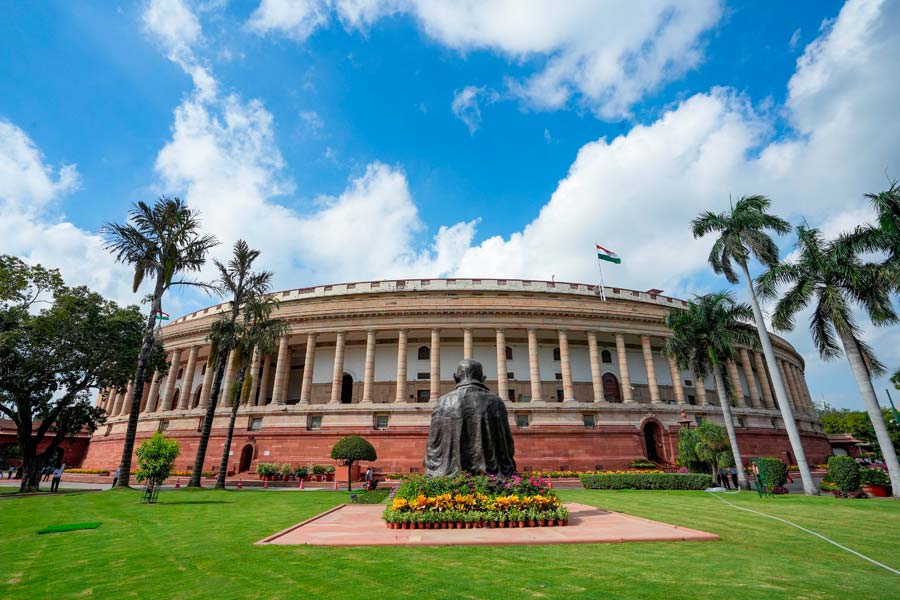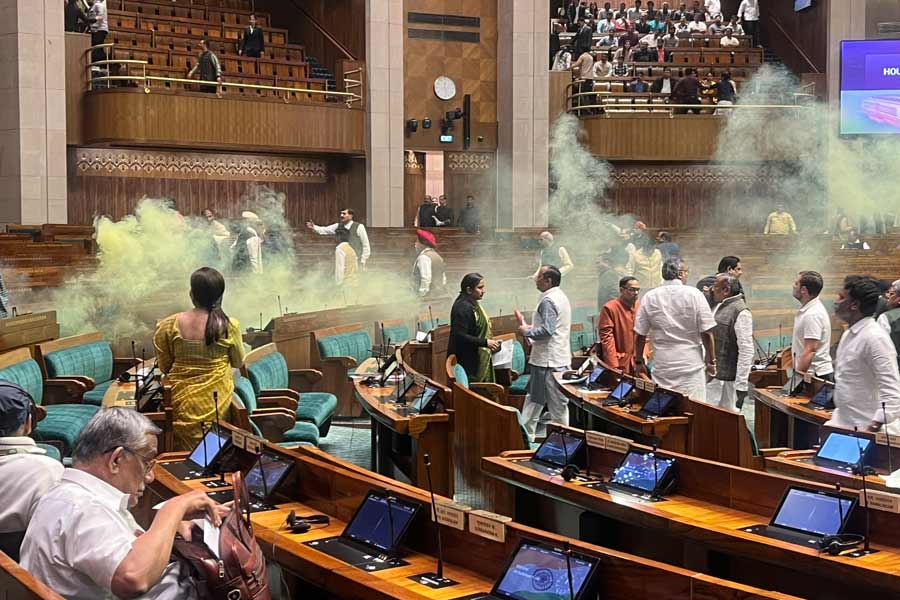The government has decided to hand over "comprehensive" security of the Parliament building complex to the Central Industrial Security Force (CISF) in the wake of the recent breach of the safety ring, official sources said Thursday.
The CISF will render access control to the new and old Parliament complex in an airport security-like fashion where body frisking of persons will be done through hand-held detectors and their belongings will be checked through X-ray machines, with a provision to even scan shoes, heavy jackets and belts by putting them on a tray and passing them through the scanner, the sources said.
Earlier, frisking of visitors to Parliament complex was done by Delhi Police personnel.
In a major security breach on the anniversary of the 2001 Parliament terror attack on December 13, two persons jumped into the Lok Sabha chamber from the public gallery during Zero Hour, released yellow smoke from canisters and shouted slogans before being overpowered by the MPs. One of the accused had hidden a canister in his shoes.
The sources told PTI that the Union home ministry on Wednesday directed for a survey of the Parliament building complex so that a "regular deployment of the CISF security and fire wing on a comprehensive pattern" could be done.
This was done after an "in principle" approval was accorded by the ministry of home affairs (MHA) to hand over the overall security of the Parliament building to the CISF.
Members of the Parliament watch and ward security will also be sent in batches to train for human and goods frisking at a CISF centre, they said.
Experts drawn from the government building security (GBS) unit of the CISF, that guards central government ministries, and fire combat and response officers of the force along with officials from the current Parliament security team will undertake the survey beginning later this week.
The survey will draw the exact number of CISF personnel required for this new task and also clearly define the role of what each security agency engaged in Parliament security will do, they said.
Both the new and the old Parliament complex and their allied buildings will be brought under a comprehensive security cover of the CISF which will also have the existing elements of Parliament Security Service (PSS), the Delhi Police and the Parliament Duty Group (PDG) of the CRPF, the sources said.
Following this Parliament security breach incident, a committee under the chairmanship of CRPF director general Anish Dayal Singh is looking into the overall security issues of the Parliament complex and will make recommendations to the Union home ministry for improvement It was after the 2001 terrorist attack on Parliament that the CISF GBS came into being and it was entrusted with security of central government buildings in the national capital like the North and South blocks, Cabinet Secretariat, Vigyan Bhawan, CBI headquarters, UPSC building and the CGO complex.
The charter of the GBS is to "maintain high level of security, including contingency response, access control and conduct of anti-sabotage checks." The CISF is a central armed police force (CAPF) that currently guards many central government ministry buildings in Delhi apart from installations in the nuclear and aerospace domain, 67 civil airports and the Delhi Metro.
Except for the headline, this story has not been edited by The Telegraph Online staff and has been published from a syndicated feed.












